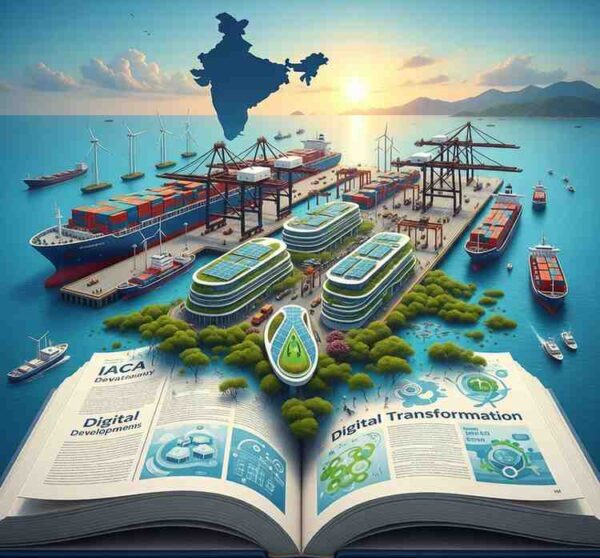Get insights into the Indian Ports Bill, 2025, introduced to replace the colonial-era Ports Act of 1908. Learn how it modernizes ports, ensures sustainability, and fosters cooperative federalism to make India a global maritime leader by 2047.
Introduction
On August 18, 2025, the Rajya Sabha sanctioned the Indian Ports Bill, 2025, which effectively replaces the Indian Ports Act of 1908 that had stood for more than a century. This landmark legislation aims to modernize port governance, improve operational efficiency, and ensure sustainable development across India’s maritime sector. By aligning with international best practices and promoting cooperative federalism, the bill envisions positioning India as a global maritime leader by 2047.
Key Objectives of the Indian Ports Bill, 2025
Modernization of Port Governance
The bill introduces a contemporary legal framework for port operations, replacing outdated provisions from the 1908 Act. It seeks to streamline administrative processes, enhance efficiency, and ensure that Indian ports meet global operational standards.
Environmental Sustainability
Recognizing the environmental impact of port activities, the legislation mandates strict compliance with ecological standards. It encourages green technologies, waste management practices, and conservation initiatives to balance growth with sustainability.
Promotion of Cooperative Federalism
The bill emphasizes collaboration between the central and state governments. It establishes a framework for dialogue and joint planning to ensure coordinated development of ports across regions, catering to both local and national interests.
Major Features of the Bill
Establishment of State Maritime Boards
State Maritime Boards will manage non-major ports, overseeing infrastructure planning, licensing, tariff regulation, and safety compliance. This decentralization allows states to tailor port development according to local needs while maintaining national coherence.
Maritime State Development Council (MSDC)
The MSDC will serve as an advisory body for integrated planning and development of ports. It promotes consultation between the central and state governments, ensuring efficient allocation of resources and seamless project execution.
Decriminalization of Minor Offenses
Minor violations in port operations will now be dealt with through administrative procedures instead of criminal prosecution. This reduces the burden on courts and fosters a compliance-oriented approach among stakeholders.
Digitalization of Port Operations
The bill promotes the use of digital technology to improve port efficiency. Digital platforms will streamline documentation, enhance transparency, and reduce delays, benefiting businesses and traders alike.
Strategic Importance for India
Enhancing Global Competitiveness
Modernized ports with efficient operations can reduce turnaround times, attract international trade, and strengthen India’s position in the global maritime industry.
Driving Economic Growth
Ports serve as gateways for trade. Improved infrastructure, efficiency, and sustainability contribute to economic growth, job creation, and industrial development, benefiting both local and national economies.
Aligning with International Standards
By incorporating global best practices in safety, security, and environmental management, India ensures its ports are internationally compliant. This facilitates smoother trade and boosts investor confidence.
Conclusion
The Indian Ports Bill, 2025, signifies a transformative move in India’s maritime industry, updating the century-old colonial-era Ports Act of 1908 with a modern, sustainable, and cooperative governance framework. Its emphasis on efficiency, environmental responsibility, and federal collaboration positions India to become a global maritime leader by 2047. As the bill is implemented, it is expected to significantly enhance India’s port infrastructure, trade competitiveness, and economic growth.

























